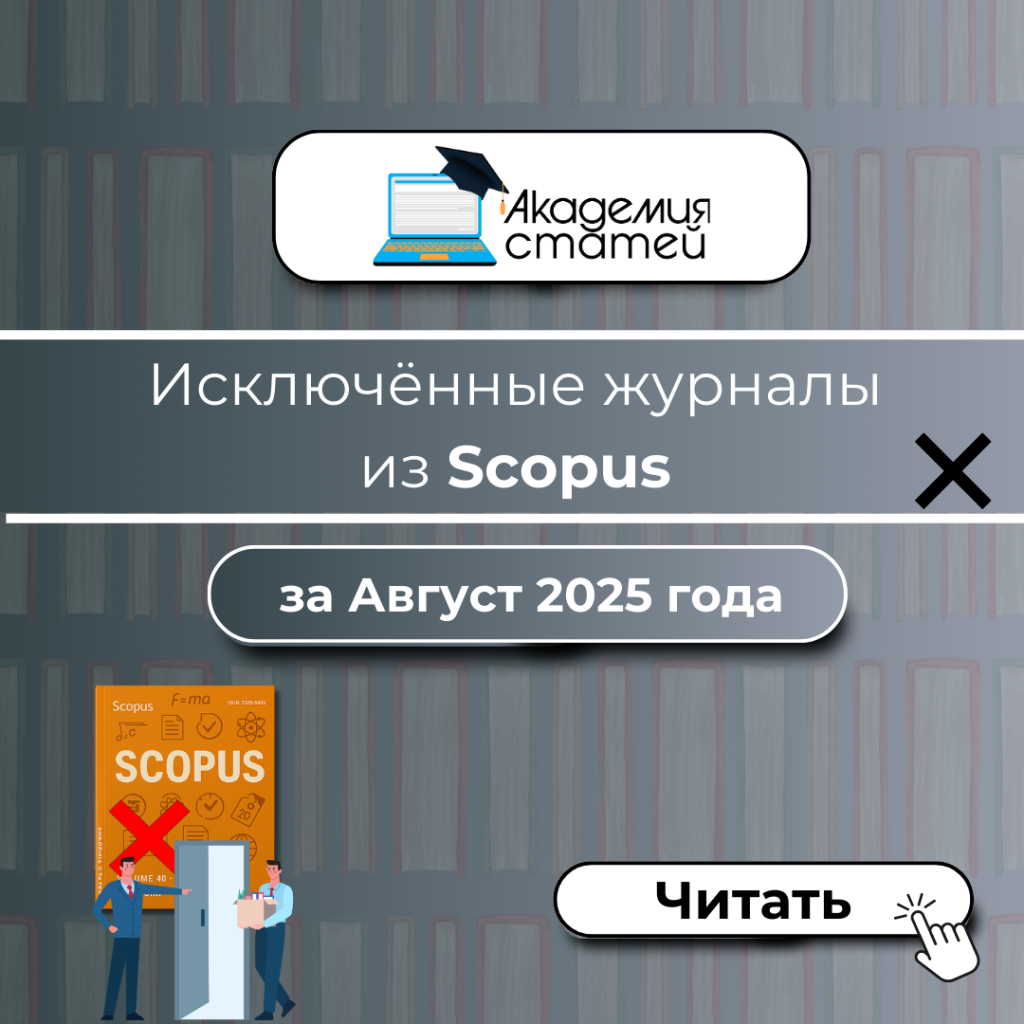In 2025, scientific publications in journals will increasingly reflect key global challenges and trends emerging at the intersection of technology, ethics, education, and sustainable development. Topics related to the UN Sustainable Development Goals, the ethics of artificial intelligence, the digitalization of medicine, green technologies, and educational innovations will become central to research.
The purpose of this article is to identify and describe the key trends that we believe will be the most popular in the field of science and scientific publications in 2025, which will have a high level of citation due to their relevance, like Scopus and Web of Science, We have forecast the topics that will form the foundation of scientific discussions and influence the development of interdisciplinary research in the future.
1. UN Sustainable Development Goals (SDGs)
This is a set of 17 global goals adopted in 2015 that aim to address critical social, economic, and environmental challenges. They include such aspects as overcoming poverty, combating climate change, ensuring quality education, and much more. The full list of goals can be found on the official UN website (sdgs.un.org).
In 2024, the scientific community, which, in particular, published in scientometric databases such as Scopus and Web of Science, paid special attention to such goals as:
📍 Combating climate change and its consequences (Goal 13).
📍 Ensuring a healthy lifestyle and well-being for all at all ages (Goal 3).
📍 Providing access to sustainable and modern energy (goal 7).
📍 Inclusive and quality education throughout life (Goal 4).
📍 Developing sustainable infrastructure and innovation (goal 9).
Why is this relevant now?
🔄 Global challengesWorsening climate conditions, pandemics and other global crises have increased awareness of the need for sustainable development.
🔄 Institutional support: Many influential platforms and databases, such as Scopus, have begun to actively cover information about the Sustainable Development Goals (https://blog.scopus.com/posts/sustainable-development-goals-now-on-scopus-author-profiles).
🔄 Expanding publishing capabilitiesThe emergence of more and more scientific journals dedicated to sustainable development encourages researchers to publish their work in these areas. For example, publishers such as Springer Nature actively support programs aimed at achieving the SDGs.
Why we think this will be popular in 2025
✅ Global challengesClimate change, energy crises, health problems, and the need to ensure sustainable development in the face of political instability make these topics urgent for scientific research.
✅ Citations and popularity of publicationsThe number of articles devoted to SDGs increased by 22–251% in 2024, and the citation rate of such works increased by 331%. We predict that this trend will continue in 2025, and the number of publications could increase by another 20–251%.
✅ Implementation of new technologiesThe use of artificial intelligence, Big Data, renewable energy, and other innovations to achieve SDGs is becoming one of the most important topics in modern science.
2. Microlearning and Lifelong learning
Why is this relevant now?
🔄 Pandemic ChallengesThe COVID-19 pandemic has forced many educational institutions and businesses to switch to remote formats. This has spurred increased interest in microlearning as an effective learning method, with the number of publications in 2024 Scopus on this topic has grown by 28%.
🔄 The need for personalized learningToday's students and workers increasingly seek knowledge that is tailored to their individual needs and learning styles.
🔄 Expanding the educational technology marketIn 2023-2024, there was a significant increase in investment in startups specializing in educational technologies. This opens up new opportunities for research and innovation in the field of education, stimulating the active participation of scientists in studying the effectiveness of new approaches to education.
🔄 Increasing the importance of continuous educationChanges in the economy and labor market require specialists to continuously learn. In 2024, we saw the rise of lifelong learning as a foundation for professional development, opening new horizons for scientific research in this field.
Why we think this will be popular in scientific publications in 2025:
✅ Growing interest in flexible learning formatsMore and more professionals are seeking ways to tailor educational processes to their individual needs. Microlearning and lifelong learning address these needs, providing effective learning solutions.
✅ The relevance of new educational technologiesThere has been a significant increase in research on the effectiveness of new educational methods, stimulating scholarly debate and publications on this topic. This opens new avenues for research examining the impact of technology on learning.
✅ The relationship between education and professional developmentRapid changes in the labour market require new approaches to training. Research analyzing the effectiveness of microlearning and lifelong learning will help develop strategies that meet modern requirements.
3. Economy: Socially Responsible Business (ESG) and the Knowledge Economy
Why is this relevant now?
🔄 Impact of the pandemic: COVID-19 has heightened the focus on the importance of sustainable development and social responsibility. In 2023, we saw an increase in scientific paper citations. Scopus and Web of Science on ESG at 45% as businesses sought new ways to adapt to the changing environment.
🔄 Technological changesAdvances in technologies such as big data and artificial intelligence facilitate the collection and analysis of data needed to assess corporate social responsibility. This has opened up new opportunities for research integrating technology and social responsibility, and this trend is projected to increase in 2025.
🔄 Knowledge Economy and Skills ShortageMany industries have struggled to find specialists capable of handling new technologies and methodologies. This has highlighted the importance of investing in training and retraining, as companies cannot remain competitive without skilled workers.
🔄 Relevance for businessSocially responsible business is becoming critical for attracting investors and improving companies' reputations. Publications on ESG help companies adapt their strategies to new consumer and market demands, stimulating academic debate and increasing the citation rate of such articles.
Why we think this will be popular in scientific publications in 2025:
✅ Growing need for social responsibility: Businesses are facing increasing pressure from investors and consumers to adhere to socially responsible practices. Publications in Scopus and Web of Science on this topic will help researchers and practitioners understand how to effectively implement ESG strategies.
✅ The Impact of ESG on Financial PerformanceResearch shows that companies with high ESG ratings often have better financial performance.
✅ Political and regulatory changesGiven the tightening of ESG regulations in many countries, there is a need for academic publications that analyze how these changes impact business and the economy.
✅ Social change and consumer preferencesA growing number of consumers prefer products and services from companies that adhere to ESG principles. This prompts research into their market impact and competitiveness.
✅ Collaboration with educational institutionsCompanies have begun to collaborate more with universities and research institutions to secure access to the latest knowledge and technologies. This has become the basis for new research in the knowledge economy, as such partnerships foster innovation and development.
4. Medicine: Telemedicine and Remote Treatment, Medical Ethics and Big Data
Why is this relevant now?
🔄 Consequences of the COVID-19 pandemicThe pandemic has become a catalyst for the rapid adoption of telemedicine, as healthcare providers sought ways to ensure patient safety while avoiding in-person contact. This has contributed to the growing popularity of remote consultations and treatment.
🔄 Growing demand for mental healthThe unstable political situation in the world, social stress, and economic difficulties have led to an increased need for psychological services. Telemedicine and remote psychological treatment are expected to increase turnover in 2023 and in 2024, as patients actively seek convenient ways to receive medical care.
🔄 Data growthIn 2024, the healthcare sector will see a significant increase in the amount of data collected from various sources, such as electronic medical records, devices, and social media. This opens up new opportunities for analysis and improvement of healthcare services.
🔄 Collaboration between technology and ethicsThe growing integration of Big Data into medical practices is challenging traditional approaches to treatment and decision-making.In 2024, we observed an increase in the number of publications in leading scientific journals on this topic by approximately 22%, and citations of such works increased by 33%. This opens up new research opportunities that require a detailed analysis of the ethical aspects of introducing new technologies into medicine.
Why we think this will be popular in scientific publications in 2025:
✅ Continuing effects of the pandemic: After the COVID-19 pandemic, society is realizing the importance of access to healthcare services.
✅ Technological progressThe development of new technologies in medicine, such as artificial intelligence and automation, is stimulating research in telemedicine. This is expected to lead to an increase in the number of publications on the implementation of new technologies in medical practice by 2025.
✅ Changes in legislation and regulationIn 2025, new laws and regulations may have a significant impact on telemedicine practice, which requires detailed analysis and discussion in scientific articles.
✅ Medical Ethics and Big Data — We predict that in 2025, the number of publications will increase further by 41% as healthcare institutions strive to balance innovation and ethical standards, using new technologies to improve care without compromising patient rights.
5. Renewable Energy Engineering and Green Technologies and Energy Efficiency
Why is this relevant in scientific publications now:
🔄 Political and energy situation: Global political instability caused by wars, sanctions, and increasing competition for energy resources has made energy independence a priority for many countries. This is spurring the development of renewable energy sources and the adoption of green technologies.
🔄 Environmental factor: In response to climate change and countries' commitments to achieve carbon neutrality, renewable energy and energy efficiency technologies have received significant impetus for development.
Trends in scientometrics:
🌐 Rapid growth in the number of publications in Scopus and Web of Science: Since 2022, there has been a sharp increase in energy-related articles, especially renewable energy, which have grown by over 40% in leading engineering journals.
🌐 Mass citation: Research in this area is rapidly becoming the basis for new technologies and policies, making it one of the most cited in engineering.
🌐 Popularity of interdisciplinary research: Articles that combine engineering, ecology, economics and energy receive the most attention from researchers.
Why we think this will be popular in scientific publications in 2025:
✅ Increased interest due to global challengesWe anticipate further growth in publications in this area as governments and corporations invest heavily in renewable energy.
✅ Massive grant support: Funding for renewable energy research has increased significantly and we expect it to continue to grow, which will stimulate publications.
6. Computer Technologies - Computer Ethics and Ethical AI:
Why is this relevant now?
🔄 The rapid development of artificial intelligence has raised serious ethical questions, particularly regarding the transparency of algorithms, data use, and decision-making.
🔄 The explosive growth of AI systems (such as generative AI) in 2023-2024 has forced the scientific community to focus on the risks of bias, privacy, and social impact.
Trends in scientific publications:
🌐 Number of articles in ScopusThe number of papers on AI ethics has grown by more than 85% since 2023, particularly in leading computer science and social science journals.
🌐 The most cited works on the scientific web are those related to the development of standards for ethical AI and their implementation in global companies.
Why we think this will be popular in scientific publications in 2025:
✅ We expect further growth in the number of publications on 30-40% due to increased attention to AI regulation and its societal implications.
✅ AI technologies in medicine, law, and education will stimulate the emergence of new works focusing on the responsibility of developers and users.
✅ Researchers will focus on interdisciplinary approaches, combining computer science, law, and philosophy to address ethical issues.
7. Linguistics
Why is this relevant now?
🔄 The development of generative AI, particularly natural language processing (NLP) models, is stimulating the creation of artificial languages optimized for working with large volumes of data and improving the efficiency of machine-to-machine communication.
🔄 In 2023-2024, there was a growing interest in interdisciplinary research combining linguistics, programming, and cognitive science to address multilingualism in AI.
🔄 The surge in research into the moral use of language models is driven by cases of discrimination, bias, and inequality in the results of AI text generation.
🔄 Since 2022, discussions on the social responsibility of linguistic technologies have become a key topic at international conferences.
Why this will be relevant in 2025:
✅ The growth of machine-to-machine communicationIn 2023-2024, the number of publications on artificial language generation increased by more than 301 TP3T. This is driven by the rapid development of automated systems, which require simple, efficient, and universal languages for machine-to-machine communication. In 2025, this trend is expected to increase by 351 TP3T, as such research becomes critical for the standardization of AI infrastructures.
✅ Ethical challenges of artificial intelligenceEthical linguistics in AI is gaining popularity due to the active implementation of language models in education, media, and law. Since 2024, there has been a significant increase in citations of papers on cultural bias in AI, highlighting the importance of transparency and accountability in text generation.
✅ Protecting linguistic and cultural diversityArtificial intelligence is increasingly influencing the preservation or degradation of less-used languages. In 2025, research focusing on protecting cultural and linguistic diversity through AI will be at its peak due to the global integration of technology into social processes.
✅ Integrating AI into multilingual systemsThe rapid development of multilingual AI systems that use artificial languages to optimize communication is stimulating activity in this field. Publications on innovative approaches to integrating and testing such systems are becoming increasingly popular among the scientific community.
Conclusion:
In 2025, scientific publications in Scopus and Web of Science, The research will focus on key global challenges such as the Sustainable Development Goals, innovative educational approaches, energy efficiency, and ethical artificial intelligence. The growing popularity of these topics is driven by societal and technological transformations, political instability, energy crises, and the development of digital technologies. Particular attention will be paid to ethical aspects, interdisciplinarity, and the practical application of research. The rapid increase in the number of publications and their citation rate in 2023-2024 demonstrates the relevance of these areas, and their further development opens new opportunities for science and society.
If you need help writing research papers on any of these topics for publication in leading journals Scopus and Web of Science, team Academy of Articles will be happy to provide professional support at every stage, from idea to publication.






